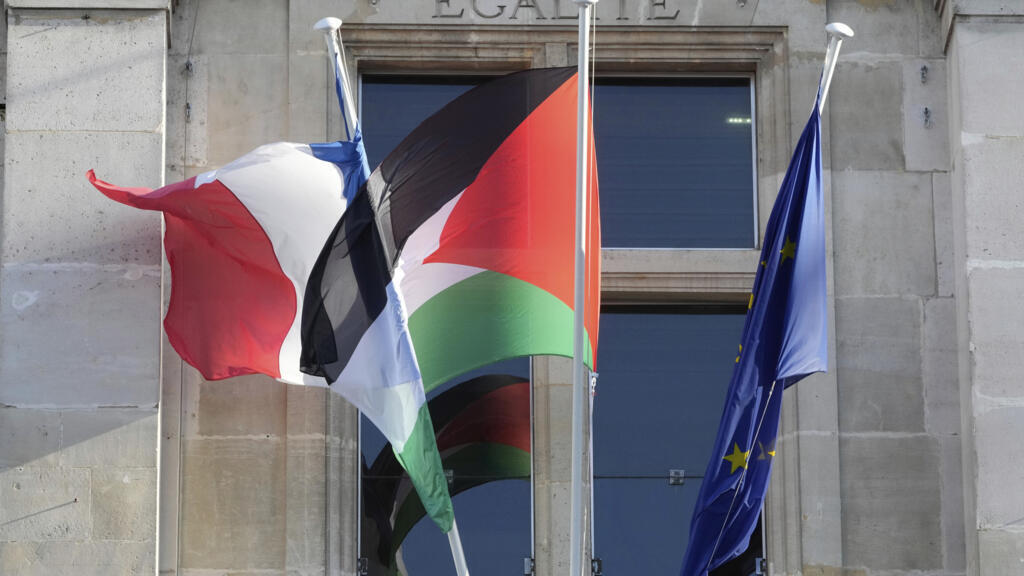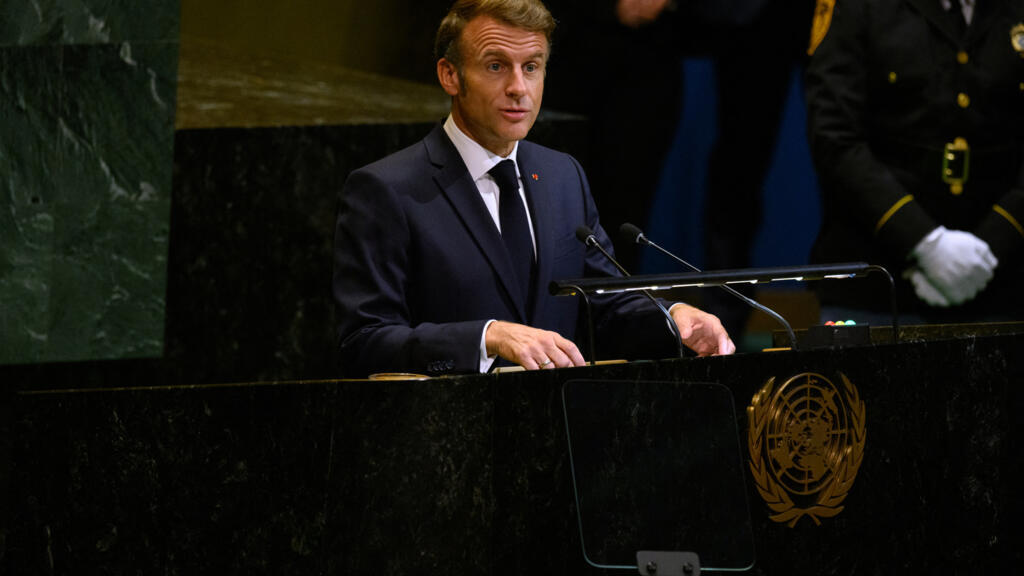French Town Halls Raise Palestinian Flags Amid Political Tensions
On a recent Monday, nearly two dozen town halls across France raised the Palestinian flag, an act that came in spite of a stern warning from the Interior Ministry. This symbolic gesture coincided with the anticipated announcement from President Emmanuel Macron regarding his intention to recognize a Palestinian state at the United Nations. The action has prompted a significant political confrontation in the country, highlighting the deep divisions surrounding the issue of Palestinian statehood and France's foreign policy.
Left-wing mayors praised the decision to display the Palestinian flag as a historic gesture promoting peace and solidarity with the Palestinian people. They argued that this action reflects the values of inclusivity and human rights, principles that they believe should guide France's foreign policy. Many leftist leaders contend that raising the flag is not merely a political statement but a necessary action to draw attention to the plight of Palestinians and advocate for their rights on the international stage.
In contrast, the French Interior Minister, Bruno Retailleau, expressed strong opposition to the display of the flag, emphasizing the need for neutrality in public service. Retailleau, affiliated with the hardline faction of the government, insisted that the raising of the Palestinian flag by public institutions compromises the impartiality expected from state representatives. He argued that town halls should remain neutral grounds, particularly on contentious international issues, cautioning against politicizing public spaces.
This clash has underscored the growing rift in French politics regarding the nation’s stance on the Israel-Palestine conflict. The left, including those who support the raising of the Palestinian flag, is increasingly vocal about their desire for France to take a more assertive stance in favor of Palestinian recognition and rights. Meanwhile, the right and centrist factions of the government, represented by figures like Retailleau, call for more measured and cautious approaches, emphasizing diplomatic decorum and neutrality.
The political fallout from this event is significant, as it not only reflects the internal struggles within French politics but also France's complex relationship with the broader Middle Eastern geopolitical landscape. The planned recognition of Palestine by President Macron at the United Nations represents a critical shift in France's foreign policy, potentially aligning with other European nations that have expressed support for Palestinian statehood. This anticipated recognition follows years of debate and differing perspectives on how best to advocate for peace in the region.
This situation has fueled discussions among various political groups, with each faction leveraging the incident to reinforce its stance on foreign policy. Supporters of the Palestinian flag display view it as progressive and essential for peace-building efforts. Conversely, those opposed argue that it could alienate France from its traditional allies and complicate diplomatic relations with Israel.
The act of raising the Palestinian flag in French town halls has sparked a vital public discourse about national identity, values, and the role of government in advocating for international human rights. As the political climate evolves, the implications of these actions will likely resonate beyond the borders of France, impacting international relations and the ongoing discussions surrounding the quest for peace in the Middle East.












